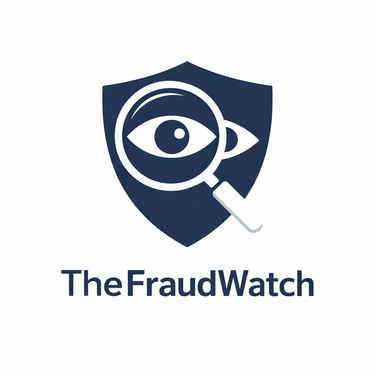The Truth Behind “Natural” & “Instant Glow” Claims
Many beauty brands promise instant glow or chemical-free skin care. This blog breaks down what’s real and what’s marketing fiction.
4/26/20252 min read
The Truth Behind “Natural” & “Instant Glow” Claims
Many beauty brands promise instant glow or chemical-free skin care. This blog breaks down what’s real and what’s marketing fiction.
“Instant Glow” or Instant Trap? I Learned the Hard Way.
There was a time I would fall for every skincare trend or else a serum claiming a “miracle glow in 7 days” or a face pack labeled “100% natural anti-aging.”
They sound tempting, especially when you’re tired of dull skin, breakouts, or pigmentation.
But here’s the thing I have learned: these claims are crafted to sell, not to help.
As a consumer lawyer and founder of thefraudwatch.in, I have spoken to hundreds of women around me and they all have stories of being disappointed, misled, or worse harmed.
Let’s break down what’s really happening behind these so-called “beauty buzzwords.”
1. “Instant Results” = Red Flag
If a product says “visible glow in 1 day” or “wrinkle-free in 3 uses,” be cautious.
According to a dermatology advisory published in The Indian Journal of Dermatology, no natural or non-invasive product can show real clinical change in less than 4–6 weeks.
Consumer Case: On YouTube, one creator reported trying a “7-day whitening kit” that left her skin dry, patchy, and irritated. The brand had hundreds of such comments — all unanswered.
2.“Chemical-Free” Is a Marketing Lie
Everything including water is a chemical. When a product says “chemical-free,” it’s likely trying to distract you from the real synthetic ingredients inside.
Example: A “natural” face wash from a well-known brand listed Sodium Lauryl Sulfate and PEGs in the ingredient list — both lab-made surfactants.
What to Do: Read the back of the label. If it says “base Q.S.,” it means they’re not disclosing the full formula.
3. “Dermatologist Approved” Doesn’t Mean It’s Safe
There is no regulatory body in India that verifies this claim. Brands can pay dermatologists to endorse a product for marketing.
External Source: FSSAI’s cosmetic guideline warns consumers to not rely solely on front labels.
4. Staged Before–After Photos Are Often Faked
Many brands show glowing transformations — but these are often filtered, taken in different lighting, or even with different people.
Always look for long-term video reviews or testimonials on Reddit or Quora. They’re more honest than 10k likes on an Instagram reel.
5. Real Results Take Time & Science
Look for brands that:
Mention clinical studies or trial batches
Disclose complete ingredient lists
Offer clear refund policies
Case Study: A Reddit user shared their story of buying a “peptide night cream” that caused rashes. The brand replied via bot message, offering no support. The user had to escalate to Amazon India for a refund.
Shruti’s Verdict: Know the Game Before You Play It
As a consumer lawyer, here’s what I always tell my readers:
Flip the bottle — don’t just read the front label
Don’t chase trends unless you’ve researched them
Avoid bundles & trial kits with heavy discount tags
Save receipts & screenshot ads — they’re your legal proof if needed
Remember, your skin is not their experiment
TheFraudWatch Verdict:
Beauty labels sell hope, not always truth. Stay informed.
External Links:
Indian Journal of Dermatology – Misleading Claims Study
Written by Shruti Shrivastava
Founder – TheFraudWatch.in
Consumer Lawyer | Public Interest Researcher
Disclaimer:
This article is intended for awareness and public interest education. It does not target any individual or brand but raises concerns based on verified sources and real consumer reports. Readers are advised to research independently and consult professionals before using any skincare product.
